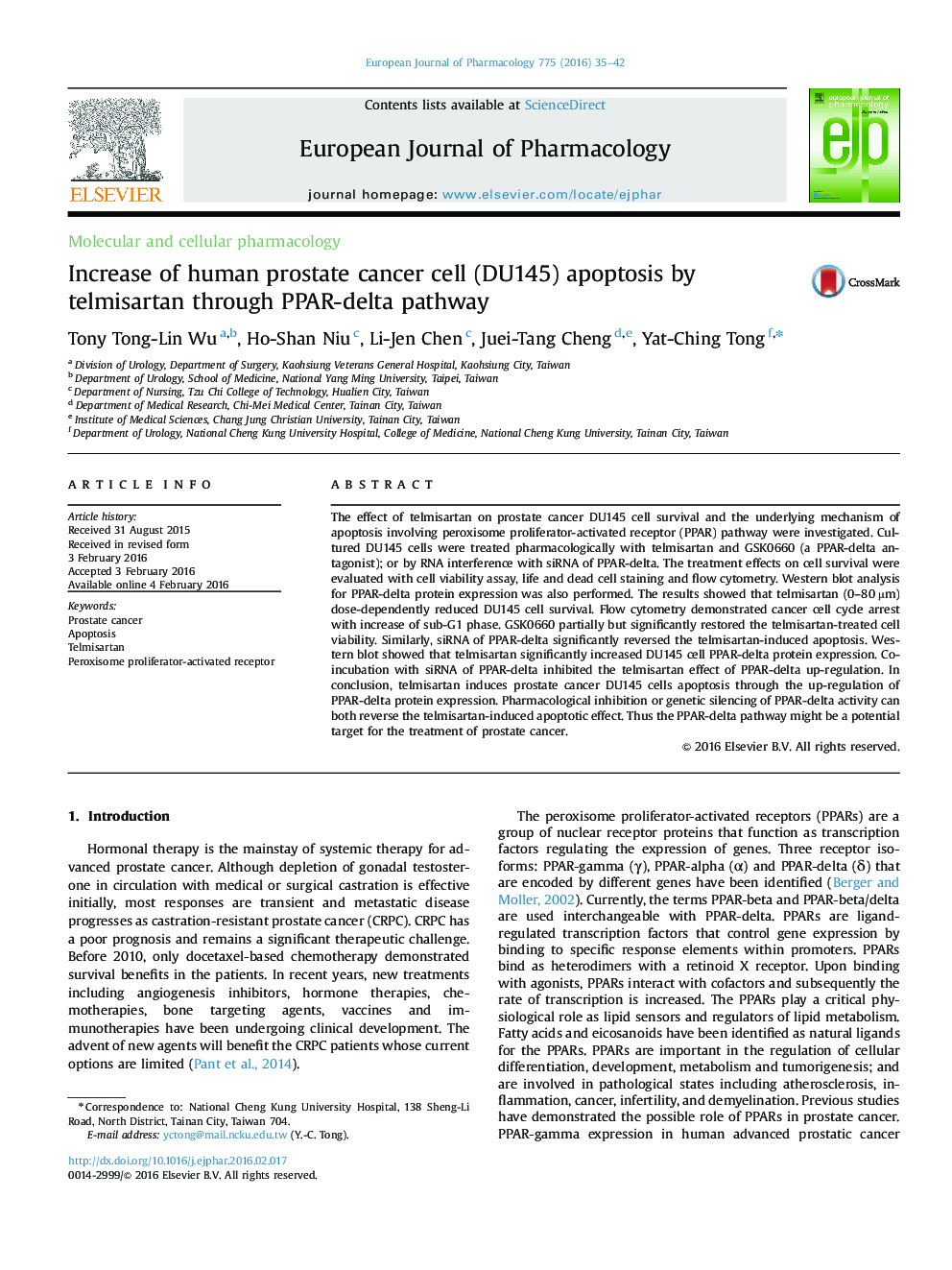| Article ID | Journal | Published Year | Pages | File Type |
|---|---|---|---|---|
| 2531147 | European Journal of Pharmacology | 2016 | 8 Pages |
The effect of telmisartan on prostate cancer DU145 cell survival and the underlying mechanism of apoptosis involving peroxisome proliferator-activated receptor (PPAR) pathway were investigated. Cultured DU145 cells were treated pharmacologically with telmisartan and GSK0660 (a PPAR-delta antagonist); or by RNA interference with siRNA of PPAR-delta. The treatment effects on cell survival were evaluated with cell viability assay, life and dead cell staining and flow cytometry. Western blot analysis for PPAR-delta protein expression was also performed. The results showed that telmisartan (0–80 µm) dose-dependently reduced DU145 cell survival. Flow cytometry demonstrated cancer cell cycle arrest with increase of sub-G1 phase. GSK0660 partially but significantly restored the telmisartan-treated cell viability. Similarly, siRNA of PPAR-delta significantly reversed the telmisartan-induced apoptosis. Western blot showed that telmisartan significantly increased DU145 cell PPAR-delta protein expression. Co-incubation with siRNA of PPAR-delta inhibited the telmisartan effect of PPAR-delta up-regulation. In conclusion, telmisartan induces prostate cancer DU145 cells apoptosis through the up-regulation of PPAR-delta protein expression. Pharmacological inhibition or genetic silencing of PPAR-delta activity can both reverse the telmisartan-induced apoptotic effect. Thus the PPAR-delta pathway might be a potential target for the treatment of prostate cancer.
